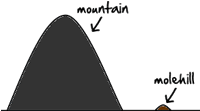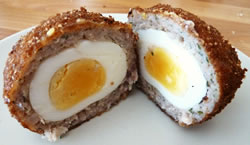Yesterday I discovered that there are quite a few different French translations of the verb to cure, depending on what kind of cure you’re talking about.
If you’re curing food by salting, the French equivalent is saler (to salt); curing by smoking is fumer (to smoke), and curing by drying is sécher (to dry). Curing leather is traiter (to treat), and curing illnesses, problems or habits is guérir (to cure, heal, recover).
The equivalents of these words in Welsh are:
– halltu = to cure (by salting)
– cochi (“to redden”); sychu mewn mwg; sychu trwy fwg = to cure (by smoking)
– sychu = to cure (by drying)
– cyweirio; barcio; cwrio = to cure (leather)
– gwella; iach’au; mendio = to cure (illness, problem, habit)
Do other languages have separate words for these?
The English word cure comes from the French curer, which means ‘to clean out’ in Modern French, and meant ‘to take care of, to clean’ in Old French, and comes from the Latin cūrāre (to care for, take care of, cure), from cūra (care, concern, trouble), from the Old Latin coira-, from the Proto-Indo-European root *kʷeis- (to heed).
Sources: Reverso, OED, Online Etymology Dictionary, Wiktionary


